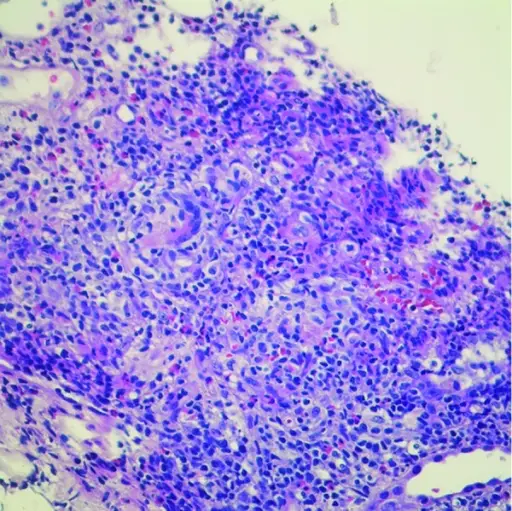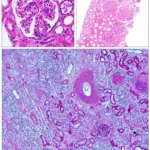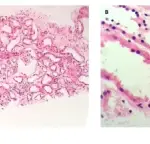Acute drug-induced Interstitial nephritis is a disease of the interstitium that occurs due to the hypersensitivity reaction towards a certain drug.
What is the Pathology of Acute Drug-Induced Interstitial Nephritis?
The pathology of acute drug-induced interstitial nephritis is:
-Etiology: The cause of acute drug-induced interstitial nephritis is hypersensitivity to drugs,
-Genes involved: Unknown.
-Pathogenesis: The sequence of events that lead to acute drug-induced interstitial nephritis toxicity from the ingested drugs causes a hypersensitive reaction to the nephrons of the kidneys leading to nephritis.
-Morphology: Unknown.
-Histology: Interstitial inflammatory infiltrate.
How does Acute Drug-Induced Interstitial Nephritis Present?
Patients with acute drug-induced interstitial nephritis typically present at the age range of 40-80 years. The symptoms, features, and clinical findings associated with acute drug-induced interstitial nephritis include rash fever, eosinophilia after 7 days of consumption of the medicine.
How is Acute Drug-Induced Interstitial Nephritis Diagnosed?
Acute drug-induced interstitial nephritis is diagnosed kidney biopsy, physical examination and history taking.
How is Acute Drug-Induced Interstitial Nephritis Treated?
Acute drug-induced interstitial nephritis is treated by mainly withdrawing the suspected medication, corticosteroids.
What is the Prognosis of Acute Drug-Induced Interstitial Nephritis?
The prognosis of acute drug-induced interstitial nephritis is fair if the medication is withdrawn.



